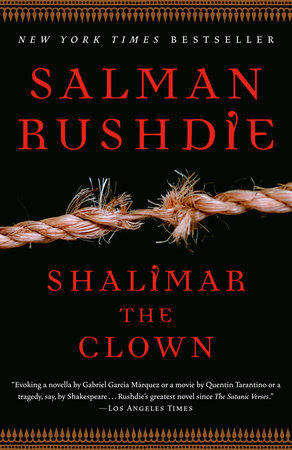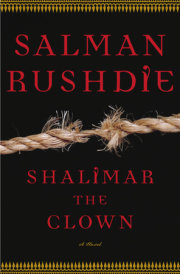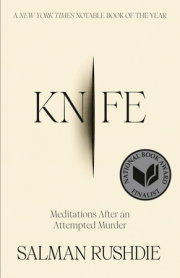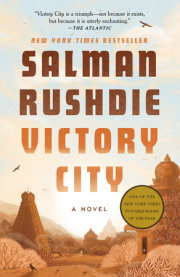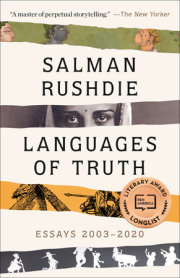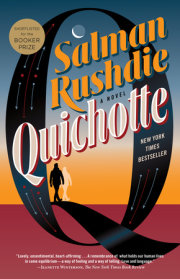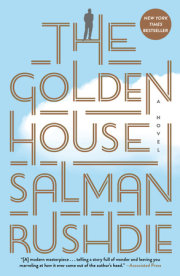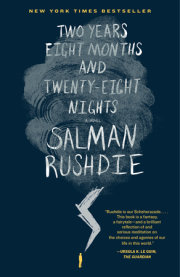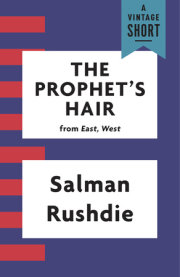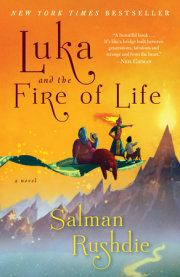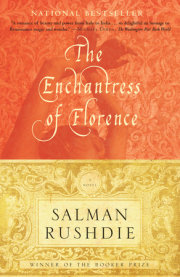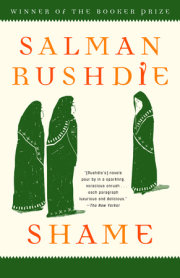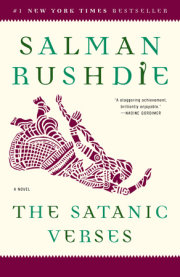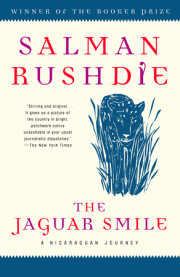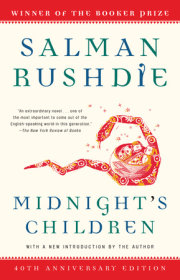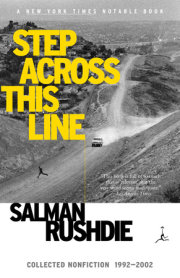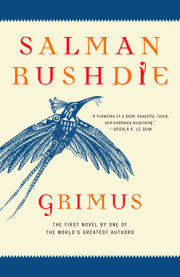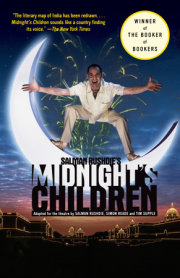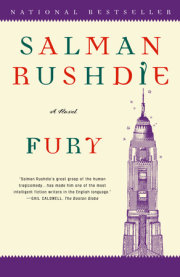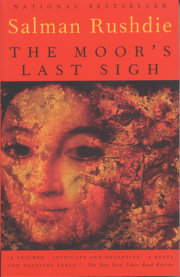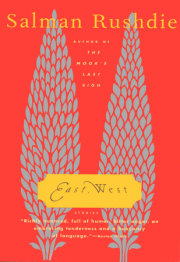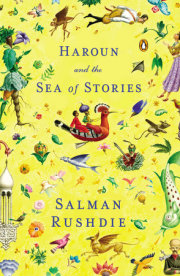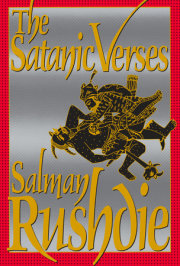Chapter 1
At twenty-four the ambassador’s daughter slept badly through the warm, unsurprising nights. She woke up frequently and even when sleep did come her body was rarely at rest, thrashing and flailing as if trying to break free of dreadful invisible manacles. At times she cried out in a language she did not speak. Men had told her this, nervously. Not many men had ever been permitted to be present while she slept. The evidence was therefore limited, lacking consensus; however, a pattern emerged. According to one report she sounded guttural, glottal-stoppy, as if she were speaking Arabic. Night-Arabian, she thought, the dreamtongue of Scheherazade. Another version described her words as science-fictional, like Klingon, like a throat being cleared in a galaxy far, far away. Like Sigourney Weaver channeling a demon in Ghostbusters. One night in a spirit of research the ambassador’s daughter left a tape recorder running by her bedside but when she heard the voice on the tape its death’s-head ugliness, which was somehow both familiar and alien, scared her badly and she pushed the erase button, which erased nothing important. The truth was still the truth.
These agitated periods of sleep-speech were mercifully brief, and when they ended she would subside for a time, sweating and panting, into a state of dreamless exhaustion. Then abruptly she would awake again, convinced, in her disoriented state, that there was an intruder in her bedroom. There was no intruder. The intruder was an absence, a negative space in the darkness. She had no mother. Her mother had died giving her birth: the ambassador’s wife had told her this much, and the ambassador, her father, had confirmed it. Her mother had been Kashmiri, and was lost to her, like paradise, like Kashmir, in a time before memory. (That the terms Kashmir and paradise were synonymous was one of her axioms, which everyone who knew her had to accept.) She trembled before her mother’s absence, a void sentinel shape in the dark, and waited for the second calamity, waited without knowing she was waiting. After her father died—her brilliant, cosmopolitan father, Franco-American, “like Liberty,” he said, her beloved, resented, wayward, promiscuous, often absent, irresistible father—she began to sleep soundly, as if she had been shriven. Forgiven her sins, or, perhaps, his. The burden of sin had been passed on. She did not believe in sin.
So until her father’s death she was not an easy woman to sleep with, though she was a woman with whom men wanted to sleep. The pressure of men’s desires was tiresome to her. The pressure of her own desires was for the most part unrelieved. The few lovers she took were variously unsatisfactory and so (as if to declare the subject closed) she soon enough settled on one pretty average fellow, and even gave serious consideration to his proposal of marriage. Then the ambassador was slaughtered on her doorstep like a halal chicken dinner, bleeding to death from a deep neck wound caused by a single slash of the assassin’s blade. In broad daylight! How the weapon must have glistened in the golden morning sun; which was the city’s quotidian blessing, or its curse. The daughter of the murdered man was a woman who hated good weather, but most of the year the city offered little else. Accordingly, she had to put up with long monotonous months of shadowless sunshine and dry, skin-cracking heat. On those rare mornings when she awoke to cloud cover and a hint of moisture in the air she stretched sleepily in bed, arching her back, and was briefly, even hopefully, glad; but the clouds invariably burned off by noon and then there it was again, the dishonest nursery blue of the sky that made the world look childlike and pure, the loud impolite orb blaring at her like a man laughing too loudly in a restaurant.
In such a city there could be no grey areas, or so it seemed. Things were what they were and nothing else, unambiguous, lacking the subtleties of drizzle, shade and chill. Under the scrutiny of such a sun there was no place to hide. People were everywhere on display, their bodies shining in the sunlight, scantily clothed, reminding her of advertisements. No mysteries here or depths; only surfaces and revelations. Yet to learn the city was to discover that this banal clarity was an illusion. The city was all treachery, all deception, a quick-change, quicksand metropolis, hiding its nature, guarded and secret in spite of all its apparent nakedness. In such a place even the forces of destruction no longer needed the shelter of the dark. They burned out of the morning’s brightness, dazzling the eye, and stabbed at you with sharp and fatal light.
Her name was India. She did not like this name. People were never called Australia, were they, or Uganda or Ingushetia or Peru. In the mid-1960s her father, Max Ophuls (Maximilian Ophuls, raised in Strasbourg, France, in an earlier age of the world), had been America’s best-loved, and then most scandalous, ambassador to India, but so what, children were not saddled with names like Herzegovina or Turkey or Burundi just because their parents had visited those lands and possibly misbehaved in them. She had been conceived in the East—conceived out of wedlock and born in the midst of the firestorm of outrage that twisted and ruined her father’s marriage and ended his diplomatic career—but if that were sufficient excuse, if it was okay to hang people’s birthplaces round their necks like albatrosses, then the world would be full of men and women called Euphrates or Pisgah or Iztaccíhuatl or Woolloomooloo. In America, damn it, this form of naming was not unknown, which spoiled her argument slightly and annoyed her more than somewhat. Nevada Smith, Indiana Jones, Tennessee Williams, Tennessee Ernie Ford: she directed mental curses and a raised middle finger at them all.
“India” still felt wrong to her, it felt exoticist, colonial, suggesting the appropriation of a reality that was not hers to own, and she insisted to herself that it didn’t fit her anyway, she didn’t feel like an India, even if her color was rich and high and her long hair lustrous and black. She didn’t want to be vast or subcontinental or excessive or vulgar or explosive or crowded or ancient or noisy or mystical or in any way Third World. Quite the reverse. She presented herself as disciplined, groomed, nuanced, inward, irreligious, understated, calm. She spoke with an English accent. In her behavior she was not heated, but cool. This was the persona she wanted, that she had constructed with great determination. It was the only version of her that anyone in America, apart from her father and the lovers who had been scared off by her nocturnal proclivities, had ever seen. As to her interior life, her violent English history, the buried record of disturbed behavior, the years of delinquency, the hidden episodes of her short but eventful past, these things were not subjects for discussion, were not (or were no longer) of concern to the general public. These days she had herself firmly in hand. The problem child within her was sublimated into her spare-time pursuits, the weekly boxing sessions at Jimmy Fish’s boxing club on Santa Monica and Vine where Tyson and Christy Martin were known to work out and where the cold fury of her hitting made the male boxers pause to watch, the biweekly training sessions with a Clouseau-attacking Burt Kwouk look-alike who was a master of the close-combat martial art of Wing Chun, the sun-bleached blackwalled solitude of Saltzman’s Moving Target shooting gallery out in the desert at 29 Palms, and, best of all, the archery sessions in downtown Los Angeles near the city’s birthplace in Elysian Park, where her new gifts of rigid self-control, which she had learned in order to survive, to defend herself, could be used to go on the attack. As she drew back her golden Olympic-standard bow, feeling the pressure of the bowstring against her lips, sometimes touching the bottom of the arrow shaft with the tip of her tongue, she felt the arousal in herself, allowed herself to feel the heat rising in her while the seconds allotted to her for the shot ticked down toward zero, until at last she let fly, unleashing the silent venom of the arrow, reveling in the distant thud of her weapon hitting its target. The arrow was her weapon of choice.
She also kept the strangeness of her seeing under control, the sudden otherness of vision that came and went. When her pale eyes changed the things she saw, her tough mind changed them back. She did not care to dwell on her turbulence, never spoke about her childhood, and told people she did not remember her dreams.
On her twenty-fourth birthday the ambassador came to her door. She looked down from her fourth-floor balcony when he buzzed and saw him waiting in the heat of the day wearing his absurd silk suit like a French sugar daddy. Holding flowers, yet. “People will think you’re my lover,” India shouted down to Max, “my cradle-snatching Valentine.” She loved the ambassador when he was embarrassed, the pained furrow of his brow, the right shoulder hunching up against his ear, the hand raised as if to ward off a blow. She saw him fracture into rainbow colors through the prism of her love. She watched him recede into the past as he stood below her on the sidewalk, each successive moment of him passing before her eyes and being lost forever, surviving only in outer space in the form of escaping light-rays. This is what loss was, what death was: an escape into the luminous wave-forms, into the ineffable speed of the light-years and the parsecs, the eternally receding distances of the cosmos. At the rim of the known universe an unimaginable creature would someday put its eye to a telescope and see Max Ophuls approaching, wearing a silk suit and carrying birthday roses, forever borne forward on tidal waves of light. Moment by moment he was leaving her, becoming an ambassador to such unthinkably distant elsewheres. She closed her eyes and opened them again. No, he was not billions of miles away amid the wheeling galaxies. He was here, correct and present, on the street where she lived.
Copyright © 2005 by Salman Rushdie. All rights reserved. No part of this excerpt may be reproduced or reprinted without permission in writing from the publisher.

